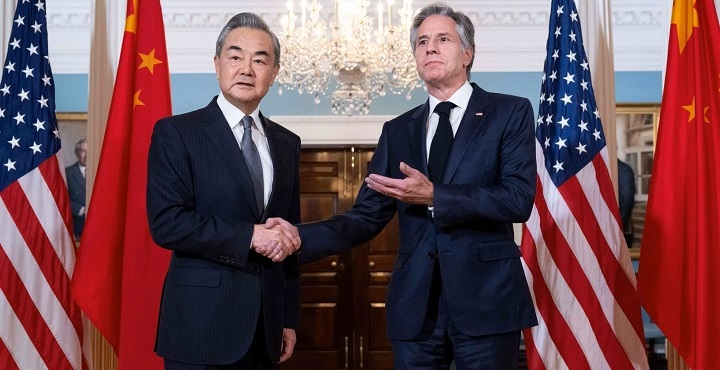
Politics and economics pull China into different directions about a broader war in the Middle East. Beijing might want to avoid a clear choice between the two, but there are signs of a possible change of heart which could spin the international situation in different directions in the following months.
Broader war?
Many in the United States and Israel fear that the war in the Middle East will broaden.
Iran has backed, possibly trained, and equipped Hamas terrorists and is preparing its allies and cronies to conceivably attack Israel if Israel gets into Gaza and gets stuck there for a prolonged time. There are militants and troops trained and armed by Iran in Lebanon, Hezbollah. Assad’s Syria is also on the payroll, and Iran is right behind.
A large war in the Middle East would make oil prices shoot up worldwide, and this could help crash the global economy, as Europe is dithering on the verge of recession.
The outcome would benefit Iran and Russia. Russia would have an advantage because, as an oil-exporting country, it would have an increase in revenues and a significant respite in its stalling war effort in Ukraine.
Iran could benefit because an external war would smother the threatening domestic dissent brewing in recent years after the women-led protests against the hijab.
This would leave China in a deep quandary.
Politically and ideologically, China would side with Iran and Russia because a Middle East war would distract American and Asian attention from its own troubles.
Economically, though, it would be a very different picture.
In the case of war, higher oil prices would impact the Chinese economy, a net oil importer. This could exacerbate domestic economic difficulties as Chinese exports suffer. The current devaluation of the RMB should help boost exports and increase oil price hikes. Higher oil prices and lower export revenues could double domestic troubles on top of the real estate crisis.
On the other hand, if China were to consider its economic interests first, it should cool down its support and financial relationship with Russia and Iran to stop and restrain the war in the Middle East.
It could, however, damage Beijing politically because Moscow and Tehran are the two main “allies” Beijing has left, and without them, it would be more isolated.
Beijing’s contradictions and Russia and Iran issues
Beijing not only has to choose between political and economic priorities, but the mere existence of this quandary, that is, the contradiction between China’s political and economic interests, will push both Russia and Iran to consider the possibility that despite whatever official statement, Beijing at a certain point might turn its back on Russia and follow its economic interest.
China is not new to this; it did it in the 1970s, siding with the US against the USSR in the Cold War. It could do it again tomorrow.
This whole picture creates a complicated framework for Beijing.
The central point is the contradiction between economic and political interests in Beijing; if the two are not aligned externally, this will create enormous difficulties abroad, especially in case of tensions. But to realign these two interests, China has to decide to sacrifice the economy on the altar of politics.
However, this can happen for only so long because the economy would crash, and the country would turn around after two or 20 years. Or it will have to align its politics with its economic interests. Then, this would imply not only a change of heart in Beijing’s support for Russia in Ukraine or Iran in the Middle East but also perhaps a general change of heart for Beijing about domestic politics.
It’s unclear whether Beijing is moving in the second direction, but there are some signs. China launched a series of policy drives to boost the economy while refraining from massive stimulus. Meanwhile, there appears to be the beginning of a political thaw with the US. China’s President Xi Jinping met with California’s Governor Gavin Newsom on October 25.
US Secretary of State Anthony Blinken and National Security Advisor Jake Sullivan will have met China’s Foreign Minister Wang Yi on October 27, setting the stage for a summit between the two heads of state in San Francisco in November.
On the day of the meeting, Chinese media announced that former Prime Minister Li Keqiang died of heart attack. He was 68, a relatively young age for Chinese leaders who usually live in their 80s or 90s. It’s not clear whether it will impact Chinese politics but the news could be shocking domestically. Li was forced to retire relatively early at the Party congress last year and was rumored to be not completely in line with some of president Xi’s positions.
The presidential summit will not be a U-turn by either country, but it could give a new spin to the situation in Ukraine and the Middle East, and thus influence China’s economic outlook. It is still too early to tell but if there is a movement in Beijing many other countries might try to adjust their positions with a global impact.





